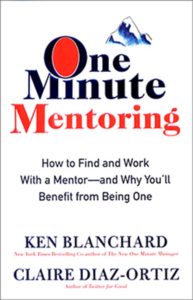Last week I told you the story of my try-hard-do-little day at the coffee shop, attempting to churn out some of my monthly writing and failing miserably. Despite the fact that I am generally a fast writer, and someone who can put pen to paper with particular speed, that day I did nothing of the kind. Instead, despite the fact I had come to the cafe with the express purpose of getting some writing work done, I did more or less nothing.
Aside from scanning my emails (and not responding), reading the interwebs (US Weekly, mostly), and refreshing my Twitter stream (it keeps going!), that is. Finally, my husband saved the day by taking on an exciting outing (!) to go grocery shopping.
It was quite an afternoon.
But what that day showed me once again was that it is always essential for me to remember when the best time of day is to do my writing. (Mid-morning or dinnertime are the times for me.) More generally, though, it is essential that I not only know the time of day I’m best at writing, but also the time of day I’m best at a host of other things in my life.
Things like:
Exercising
Relaxing
Doing my Daily Quiet Time
Having Meetings
Brainstorming
Talking on the Phone with Family
Playing with my Baby Daughter
It may sound over-the-top to not only figure out the best times of days to do these things, but then also try to build a schedule around it, but I believe it’s pretty close to fundamental if we want to slowly work towards having better days, and better lives.
Here are a few steps to try to build these better lives we’re after using this strategy:
- Write a list of the main activities you do in a given day. Work, rest, sleep, exercise are all good things to put down.
- Break that list down into smaller activities. Now you’ve got to break it down. What do you do when you work? You talk on the phone. You have meetings. You do brainstorming work. You respond to emails. Write all those tasks down.
- Now think about when you’re best at each of those things. Really think. And don’t just answer once and for all today, but take a week. Take a month. Watch yourself as you live your life, and think about it, over time.
After you do these things, you’re then ready to take on the bigger task of starting to build a life designed around living your life at the best time of day you can. Even if you aren’t someone with a detailed schedule day in and day out, this can still work incredibly to give you the broad strokes picture of how you should run your days.
If you’ve tried this in any capacity, I’d love to hear your experiences. What has worked, and what hasn’t? Have you learned about yourself in the process?





Hi Claire,
I have done exercise before and I am best at writing and thinking in general the first thing in the morning. I keep a notepad and a pencil by the bed. I also found that the early morning is the best time for me to get a jog in, before I eat anything but two energy bites and a half a cup of coffee. I almost always get up before dawn as I enjoy seeing the day break wide open. I fell like I lost time if I get awake after the day has broken into daylight. Mid evenings are the best time for me to read and collect thoughts as I wind down for the evening and then those things are fresh on my mind as I drift off to sleep.
I haven’t consciously sat down and done this, but when I look at the weekly schedule I put together, I see that I seem to have naturally put my tasks in at the times where I would likely have the most success. The best thing I did was to put a trip to the gym right in the middle of the day, which gives me an energy boost to keep working when I get back home.
I used to go in to work early, like 7am, for a couple of reasons. One was that I had a good couple of hours before it got busy so I could get my head down and get stuff done without distractions. The other was that I could then leave earlier, giving myself time at home to do the stuff I want to do before I crash out for the evening. Stuff like writing, painting, home admin, exercise. But I’ve realised that I wasn’t doing that. I would spend all day at work thinking about the interesting creative things I planned to do, but as soon as I actually got home I would still just crash out, as if it was 7pm rather than 4pm. In reality I had still done a day’s work, and was still mentally and physically tired, regardless of the fact I was home earlier in the afternoon. And I was frustrated with myself that I couldn’t find the time or motivation to do things that I claimed I really wanted to do! So my new year’s resolution this year has been to continue getting up early but use those couple of hours to do the things I really want to do – before going and draining my energy at work. Now when I get in to the office, at the same time as everyone else, I’m feeling great because I’ve already done something interesting with my day!
enjoyed the article, as your question is something that seems to be tuned as i get older and try to blend work/family in a some way that doesn’t resemble the mind driving on the LA freeway during rush hour – start, go fast, stop fast, repeat http://www.ubeme.com/brainstormcafe/2015/1/16/creation-in-normalcy
I just realized this week that the best time for me to write is before dawn. While I’ve had to think through the list of what needs to happen for me to write in some of the earliest of the morning, I’ve been thrilled with the results so far.
Great post – thanks!!